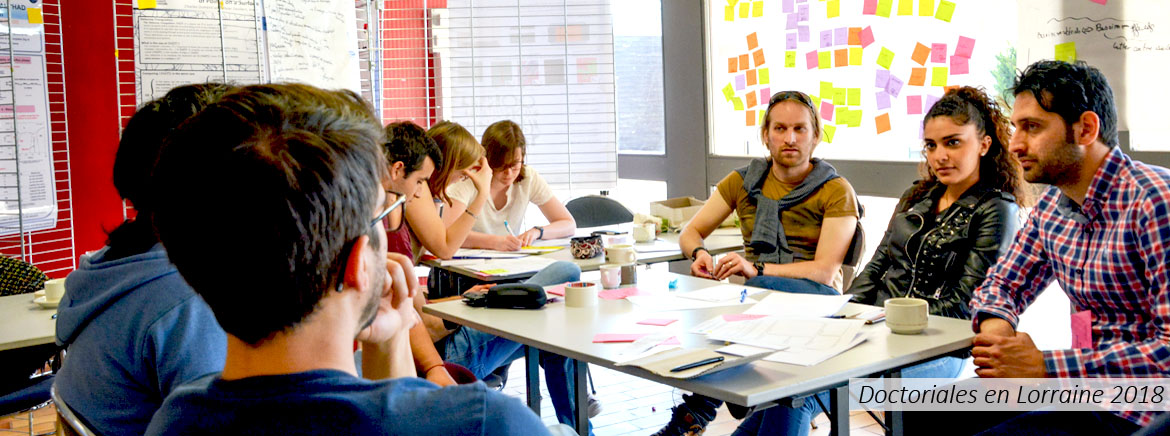Apply for a PhD

Why a PhD @UL
Why a PhD...

Studying for a PhD after a Master’s degree or studies at an engineering school means opting for an enriching and stimulating experience that will lead to the highest university diploma, recognised worldwide.
Working in the setting of a Doctoral School’s research laboratory, you will be helped to acquire research skills by your Thesis Supervisors, who transmit and develop science with true passion on a daily basis.
As a PhD student, you may enjoy a triple status: that of a student trained by the best teachers in your discipline, that of researcher whose doctoral work will be at the core of your activity for several years, and also that of an employee. In this respect, the PhD will constitute an original first professional experience.
The PhD student must rise to a challenge that entails: solving a scientific question and producing knowledge to respond to social and disciplinary issues. Such research activity requires pushing back the boundaries in order to approach the world with a scientific mindset guided by curiosity, intuition, creativity and imagination, and also based on reflection, methodological tools and approaches, and validation and verification phases.
Apart from the intellectual satisfaction of being awarded the diploma, being a PhD means becoming an expert in one’s field, integrating a scientific community and acquiring an opening to the world at large. PhD training develops a portfolio of transversal skills that can be made best use of in future professional integration. Project steering, analysis, the ability to summarise, critical thinking, openness, creativity, integrity, teamwork, communication, information monitoring, collection and management techniques, change management, and notions of intellectual property: all of them skills that will be acquired by the end of the PhD course and that you will be able to make best use of.
... at the University of Lorraine ?
Research at the University of Lorraine covers all scientific fields in Human and Social Sciences, Science and Technology, and Life and Environmental Sciences. Although research at our University has traditionally been influenced by local economic development in terms of forestry, agriculture, mining, industry and humanism, leading to strong anchorage in each disciplinary sector, it looks to the future and now also focuses on subjects that prefigure tomorrow’s world (mastery of the whole material value chain, sustainable management of natural and environmental resources, development of future energies and support to energy transition, confidence in the digital world, engineering at the service of promote health and ageing, and language and knowledge engineering), drawing on scientific equipment and major modern infrastructures, national and international high level scientific cooperation and partnerships developed with the socioeconomic world.
Alongside a disciplinary anchorage that guarantees scientific quality and proven recognition, the University’s strength is also based on interdisciplinarity via relations between its 10 scientific clusters, 60 laboratories and 5 research federations.
Far removed from traditional stereotypes, Lorraine is truly unique, a scintillating and warmly welcoming region, known for the kindness of its inhabitants, the dynamism of its cities and quality of student life, its protected natural sites, wide range of outdoor activities, historical and cultural heritage, and its traditions. Located one and a half hours from Paris by TGV high-speed train, Lorraine is at the heart of Europe, a few kilometres from Luxembourg, Germany and Belgium and is nourished by exchanges with its neighbours.
I invite you to acquaint yourself with all the riches of the University of Lorraine and its territory by preparing a PhD at our establishment.
Clotilde Boulanger, Vice-President in charge of doctoral policy


